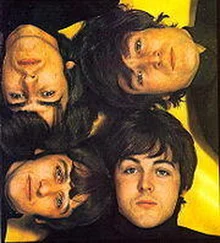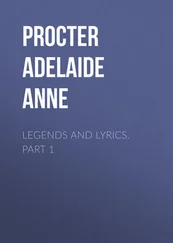Leila Aboulela - Lyrics Alley
Здесь есть возможность читать онлайн «Leila Aboulela - Lyrics Alley» весь текст электронной книги совершенно бесплатно (целиком полную версию без сокращений). В некоторых случаях можно слушать аудио, скачать через торрент в формате fb2 и присутствует краткое содержание. Год выпуска: 2011, Издательство: Grove Press, Жанр: Современная проза, на английском языке. Описание произведения, (предисловие) а так же отзывы посетителей доступны на портале библиотеки ЛибКат.
- Название:Lyrics Alley
- Автор:
- Издательство:Grove Press
- Жанр:
- Год:2011
- ISBN:нет данных
- Рейтинг книги:5 / 5. Голосов: 1
-
Избранное:Добавить в избранное
- Отзывы:
-
Ваша оценка:
- 100
- 1
- 2
- 3
- 4
- 5
Lyrics Alley: краткое содержание, описание и аннотация
Предлагаем к чтению аннотацию, описание, краткое содержание или предисловие (зависит от того, что написал сам автор книги «Lyrics Alley»). Если вы не нашли необходимую информацию о книге — напишите в комментариях, мы постараемся отыскать её.
Lyrics Alley — читать онлайн бесплатно полную книгу (весь текст) целиком
Ниже представлен текст книги, разбитый по страницам. Система сохранения места последней прочитанной страницы, позволяет с удобством читать онлайн бесплатно книгу «Lyrics Alley», без необходимости каждый раз заново искать на чём Вы остановились. Поставьте закладку, и сможете в любой момент перейти на страницу, на которой закончили чтение.
Интервал:
Закладка:
Nabilah touched his arm and he leaned closer to listen.
‘There are hardly any senior Egyptian officials. Very different from previous occasions.’
She was right. The government was keeping the Egyptian contingent at a distance. Instead, it was the aspiring Sudanese politicians who were milling close to the Governor-General. None of the conservative tribal sheikhs were here, though. They would shun such a gathering, which included women and alcohol. Here, with the garden lights and the waiters circling with trays of hors d’ oeuvres, was the British and Levantine core of Khartoum: cosmopolitan and opportunistic, confident and only recently vulnerable. Mahmoud spotted a merchant who had expressed interest in leasing office space in the new building. It was too early to come to an agreement, but Mahmoud strode across the lawn to reassure him that the construction work was proceeding according to schedule.
V
Ustaz Badr stood in the busy Abuzeid office facing Mahmoud Bey’s imposing desk. He took his time greeting the Bey, expressing with eloquence how grateful he was to Allah for restoring the gentleman’s health and returning him to his place of business. But something was wrong. He could tell from Mahmoud’s puzzled look and the way he frowned sideways at his brother and shook his head as if to ask, ‘Who is this?’ Before Badr could remind him that he was his children’s private tutor, the door of the office was pushed open and, as it seemed to Badr, the sun itself blasted through. The Coptic secretary, who had a minute ago carelessly waved him in, was now standing upright with the utmost energy and expectation, to usher in a tall well-dressed Englishman. To Badr’s astonishment, Mahmoud Abuzeid sprang to his feet and circled from behind his desk to greet his guest in the middle of the room.
‘Mr Harrison, what a pleasure, what a pleasure! Welcome, Sir, to my office. What an honour!’ He pumped the young man’s hand and the Englishman smiled with appreciation.
It seemed to Badr that he was pushed aside. Metaphorically yes, he was discarded but physically, too, he was pushed aside, though afterwards, when he looked back on this scene, he was not sure who had actually touched him and shoved him out of the way. Was it the secretary, Victor, who had a few minutes ago in the reception area, casually asked him his name and occupation without leaving his desk? Or was it Mahmoud Abuzeid himself, or his brother, or the other attendants in the office who had sprung to their feet, not as fast as Mahmoud Bey, but immediately after him? Badr did what was expected of him. He moved out of the way. He shrunk himself, backed out, and slipped out the door, away from the enthusiasm between men who mattered and the exchange of these clipped, sparkling English words.
There was space for him in the streets of Khartoum. He blended with the pre-sunset liveliness when shops and offices re-opened after siesta. The December air was clean and invigorating and this should have been an afternoon of hope and new beginning, of action not delay. Subhan Allah, when something is not meant to happen, it will not happen, no matter what. Who would have thought that his mission would abort? Or that he would fail before even attempting?
‘Go to him at his office,’ Hanniyah had said. ‘You have been relying on his son and his wife to ask him about the apartment but his son has gone away and Madame Nabilah must have forgotten. Go to him yourself.’
Her advice had seemed sound, remarkably solid for an uneducated village woman. But he should have followed his usual habit of doing the opposite of what she suggested. Here he was, now dislodged into the street, having not even mentioned the new building, let alone his request to rent an apartment. If he had gone in a couple of minutes earlier, he would have at least articulated his request before the Englishman blasted through the door. If. This ‘if’ would open the door to Satan. Quell your disappointment. Perhaps there would be another day, another opportunity. Badr felt tired. He had not really wanted to visit Mahmoud Bey in his office. The man could not even remember him! You have made a fool of yourself, Badr. But wallowing in self-pity and humiliation was a luxury he could not afford. What was next on his agenda of chores? Another private lesson? He must buy bread and olives. . his mind was muddled.
He hurried down the road but the grocer closed the door in his face. Another door. No cheese and olives for the children’s supper tonight. Hanniyah was newly pregnant and craving olives. Now he would have to deliver disappointment without even a pickle to quench her need. But a believer does not despair in Allah’s mercy. He needed to remind himself of that.
It was Shukry’s visit that had aggravated the situation. His cousin had been true to his threat of coming to Sudan to search for work, relying on Badr’s hospitality. But three weeks, one month, and Badr’s patience was beginning to strain. Food was not the problem, space was. One cramped room and a narrow hoash was all they had. They had all been sleeping outdoors in the hoash but now the weather was cooler. Last night Radwan had started to cough and Hanniyah had to take him inside. What to do if a cold spell descended? Put the guest in the room as well as the children and his elderly father? But then Hanniyah would catch cold outside. It was an awkward situation, one that made him feel helpless and ashamed. This morning was the worst; he had caught Shukry stealing a lustful look at Hanniyah as she squatted over the stove to heat water. Cousin or not, Badr was willing to pull his eyes out, but in a hurry to get to school on time, he had controlled his anger and avoided a scene. Besides, if he confronted him, Shukry would go back to Egypt and spread nasty rumours about Badr. It was better to be patient and pray that, insha’ Allah, the youth would find a job soon, a job that would provide him with accommodation. Badr couldn’t wait to see the back of him.
One room and a hoash. The difficulty of being with his wife, alone. Always having to be careful, to lower their voices and hide from the children. Night was the best curtain, but even though his elderly father was senile and nearly blind, Badr still felt inhibited by his sleeping presence. Poor Hanniyah! She had no privacy to change her clothes or beautify herself like other women. Always his father and the children were in the way and now, worst of all, his cousin with the roving eyes.
He walked home, but his step had lost its earlier briskness. He took his time, conscious of the swift descent of the sun, the softness and birdsong that accompanied it. He heard the maghrib azan, but it came from random prayer zawias, rather than mosques. There was only one functioning mosque in the city; the other, the Old Mosque, built during Turco-Egyptian rule, had fallen into disrepair. King Farouk was now financing its refurbishment, but extensive work was needed and the project was taking too long. There should be more mosques, Badr thought. Khartoum had seven churches for its communities of Catholics, Greeks, Copts, Armenians and the Anglican British officials and their families. It was the Anglo-Egyptian invasion that had brought all these people in. They revived Khartoum after the Mahdi had neglected it and established his capital in Umdurman. Badr brought his mind to the present and joined a group of men washing themselves in preparation to pray. The water was still warm from the heat of the afternoon. His sons should have been with him. At home, Hanniyah would remind them to pray, but they would evade her and run out to play in the alley. He smiled, thinking of them, mischievous and lively, needing his guidance.
The men lined up in the garden on King Street, near the building site of the Farouk Mosque. Badr liked praying in Sudan. There was something spacious and welcoming about these prayers in the open air and it seemed to him as if they accommodated more of Allah’s creatures. This feeling, when he first arrived in Sudan, had seemed to him fanciful, but he had grown used to it and accepted it. As a child in his village of Kafrel Dawar, he had been terrified of the ghouls and djinns that inhabited the darkness of alleyways and the most deserted of fields. This fear had turned to caution when he was older, and whenever circumstances compelled him to take these haunted routes, he would arm himself with verses of the Qur’an and hurry to his destination. In Sudan, though, he had come to experience more benign spirits.
Читать дальшеИнтервал:
Закладка:
Похожие книги на «Lyrics Alley»
Представляем Вашему вниманию похожие книги на «Lyrics Alley» списком для выбора. Мы отобрали схожую по названию и смыслу литературу в надежде предоставить читателям больше вариантов отыскать новые, интересные, ещё непрочитанные произведения.
Обсуждение, отзывы о книге «Lyrics Alley» и просто собственные мнения читателей. Оставьте ваши комментарии, напишите, что Вы думаете о произведении, его смысле или главных героях. Укажите что конкретно понравилось, а что нет, и почему Вы так считаете.











